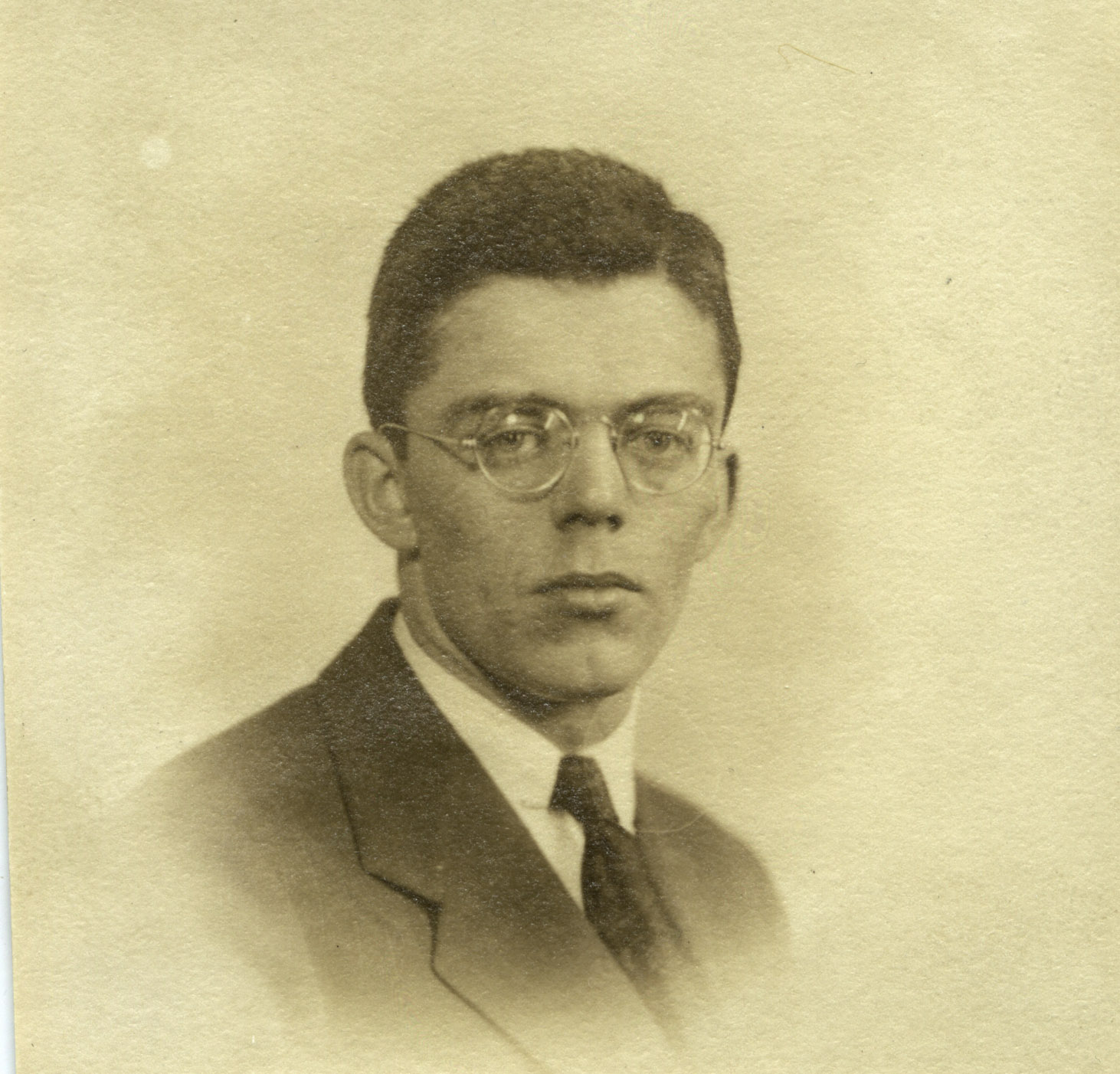Background on Charles Whipple

Charles L. Whipple, ca.1935
A noted journalist with the Boston Globe, Charles L. Whipple earned national attention in 1967 as author of the first editorial at a major U.S. newspaper to oppose American involvement in the War in Vietnam. Born in Salem, Massachusetts, on May 18, 1914, the son of a successful dry goods merchant, Whipple had deep New England roots, claiming descent from both a Salem witch and a signer of the Declaration of Independence. A precocious student, he graduated from Lexington High School in 1930 at the age of 16, and being too young for college, prepped at Exeter for an additional year before entering his father's alma mater, Harvard.
Despite coming from privilege, Whipple was drawn to radical politics, joining the Young Communist League in his sophomore year in 1933 and remaining active as he continued on to the study of law, intending to become a labor attorney. Whether it was because of his politics or other matters, Whipple's career plans took a sharp turn in 1936 when he ran afoul of a professor in property law, who failed him for skipping a class, resulting in dismissal from school. After recovering from the "horrible shock," Whipple spent the summer selling Realsilk hosiery door-to-door before landing a position as a copy boy at the Boston Globe in September. He quickly found his niche in journalism. A talented writer with a keen intellect, Whipple moved up to become a cub reporter, earning bylines for covering local and national politics.
Although he later claimed that his drift away from Communist sympathies began when he started as a newspaperman, Whipple appears to have remained true to his radical politics. At the Globe, he joined the American Newspaper Guild, a union which had been organized three years previously by the left-wing journalist Heywood Broun and which in 1937, shifted affiliation from the AFL to the more radical CIO. A part of a small Communist study group within the union, Whipple rose quickly to become Secretary for the Boston chapter.
As the threat of entry into the Second World War loomed over the United States in 1940, Whipple left the Globe to become a full-time international representative for the American Newspaper Guild. Although he later claimed that he moved to the Pittsburgh area to break ties with the Communist Party over its agitation to keep the U.S. out of the conflict (a stance it held before the German attack on Russia), Whipple was actually charged by the union with directing the 1941 strike against the Aliquippa Daily Gazette.
Whatever his political views had become, Whipple was eager to join in the struggle. Classified IV-F (unfit for active duty) due to the loss of sight in one eye, he nevertheless managed to enlist with the Red Cross in September 1942, serving thirty months in Europe and earning a Purple Heart for minor wounds sustained while evacuating soldiers soon after the invasion of Normandy. By the middle of 1945, Whipple was serving as a Red Cross Field Director with the rank of Captain, working with the 21st Army Group to supply liberated American Prisoners of War while they awaited transfer home.
When he returned to civilian life in 1946, Whipple resumed his old job with the Globe. His talent and dedication earned him an appointment as editor of the newspaper's opinion page in 1962, and after he resigned that position in 1975 to make way for a woman editor (Anne Wyman), he became the paper's first Ombudsperson. Having turned against the war in Vietnam early on, he editorialized regularly against American involvement and traveled there in 1968 to report on the war firsthand.
After more than forty years' at the Globe, Whipple stepped down in 1979, although he did not fully retire. With his second wife, Priscilla, he moved to Beijing, China, to work with Xinhua News Agency and the Beijing Review to establish China's first English-language daily, the China Daily, in 1981. Three years later, the Whipples returned to Massachusetts and settled into full retirement in Leverett, Mass. Charles Whipple died at Cooley-Dickinson Hospital in Northampton on May 12, 1991, following complications from surgery.

